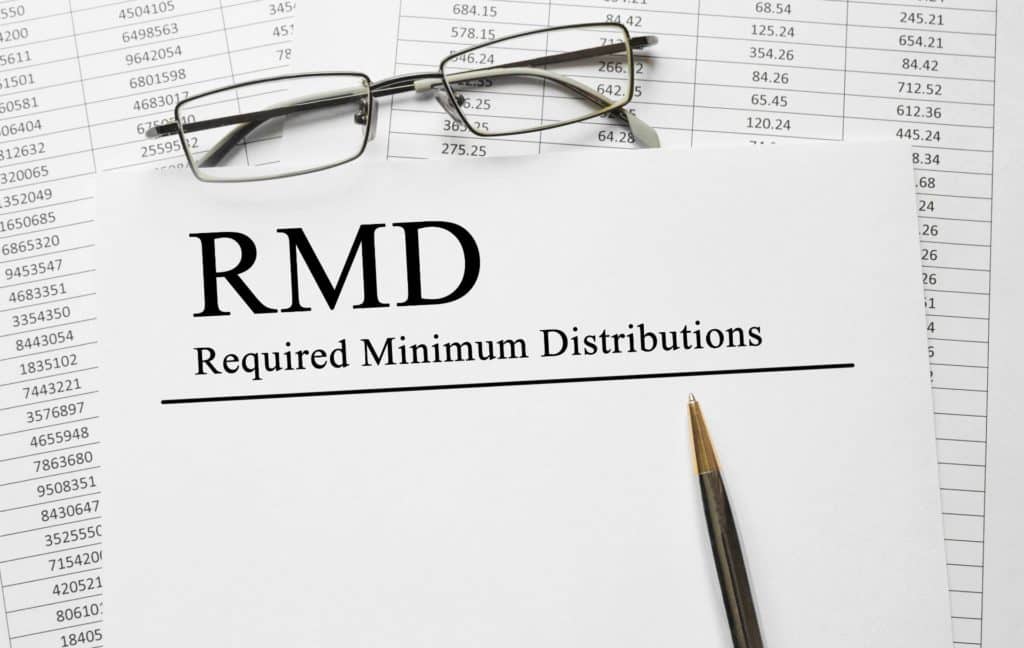
Secure Act Passes So Revisit IRA Planning
The Secure Act will force faster withdrawals from Inherited IRA Accounts.
Call us Anytime
Laurel, MD 20707
Downs Law Firm, P.C.
Home • Retirement • Page 2

The Secure Act will force faster withdrawals from Inherited IRA Accounts.

Taking a few precautions before you get behind the wheel can help you avoid a lot of problems on the road.
Going straight from a busy work life to ‘retired’ can be difficult if you haven’t mapped out your path. Preparing yourself effectively involves both financial and lifestyle choices.
What is the size of the average retirement nest egg? It depends on what you mean by ‘average.’

One of the great things about being retired is that you no longer have a job tethering you to a particular location. You have the freedom to move. However, just because you can pick up and go, doesn’t mean it’s a good idea to go just anywhere.

The Secure Act would upend 20 years of retirement planning and stick it to the middle class.

Once your money is in a retirement account, it’s there until you’re ready to use it, right? Not exactly.
‘Divorce gap’ can have an impact on income, as well as on retirement planning. In my prior life, a large part of my practice was as a divorce lawyer. I was involved with may stress filled conversations about the marital break-up. While the ending of a marriage is an emotionally devastating event for most people who experience divorce, it is also very much the ending of a business relationship. Intermingled efforts at saving, raising children and maintaining a home deserve the eyes of a third party who is knowledgeable about assets, alternative ways to negotiate, and what will likely happen in Court if you cannot agree. If you or a loved one is going through this process, seeing proper legal counsel about your rights, particularly as to retirement plans accumulated during the marriage, is critical. A competent divorce lawyer can be well worth their cost. A study from the Center for Retirement Research at Boston College found that divorced women historically are better off than single, never married women, because of the assets they have accumulated before divorce, primarily home ownership. However, that can have a negative impact on retirement, according to Money in “This is The Single Best Way Divorced Women Can Secure a Successful Retirement.” Many divorce lawyers and financial advisors say that keeping the house after divorce, isn’t always the best move. Many newly-single women find they don’t have the resources to keep up with mortgage payments, maintain the property, pay taxes and deal with unexpected crises. One advisor says she’s concerned that these new numbers will lead to women who can’t necessarily afford to maintain a home to hang on to their homes. However, a researcher involved in the study maintains that while the study mentions homeownership, there’s a bigger point being made. Married women who divorce benefit from receiving a share of marital assets. Single, never-married women do not and must rely solely on themselves for saving and accumulating assets that can be used to finance their retirement. A critical fact that women who are divorced must do: whatever assets they get in the divorce settlement, commit to keeping those assets intact for retirement. It’s easier to do this with a house. However, it’s tempting to dip into assets that are intended for retirement. Many of our clients put plans in place to protect the asset they leave to children from divorce. An estate planning attorney can advise you in creating an estate plan that meets your unique circumstances, including retirement planning. Reference: Money (Aug. 10, 2018) “This is The Single Best Way Divorced Women Can Secure a Successful Retirement”
Bad news in the media can spark people to take Social Security before it is gone. Claiming Social Security benefits early means a smaller monthly and lifetime benefit for you and likely for your surviving spouse, according to The Motley Fool tit in an article on a Gallup survey of retired and non-retired people in “Social Security: Why Claiming Early Could Be All the Rage Next Decade.” The Social Security Administration reports that 62% of retired Americans rely on their benefits for at least half of their income stream, with about a third of Americans relying on Social Security for almost all their post-working income.Only one in 10 people don’t depend on Social Security at all for income, when they are retired. Your retirement benefits are based on your 35 highest earning, inflation adjusted, years. To max out, you’ll need to have worked for 35 years. Years with zero income can impact your overall totals. Birth year is another factor. That determines your Full Retirement Age (FRA), the year that you become eligible to receive your full retirement benefit. Claim earlier, and you risk permanently reducing the monthly benefit by as much as a third. Claiming after your FRA could boost benefits by 32%. Most people do start claiming Social Security benefits before their FRA, for a variety of reasons. Sometimes it’s because they have lost their job, are over 60 and can’t get hired. Some people simply don’t know that the longer they wait to claim, the higher their benefits will be. What is clear is that 60% of retired workers in 2013 took their benefits between 62-64, with another 30% claiming between 65-66. One in 10 workers took benefits after their FRA. There has been a change in recent years. While more people are waiting longer to claim their benefits, fewer are waiting until their FRA. The reason is tied to the headlines. People are worried that Social Security is going to be cut, and they want to get the income they can while the agency is still fully funding benefits. The 2018 Trustees Report (officially, “The 2018 Annual Report of the Board of Trustees of the Federal Old-Age and Survivors Insurance and Federal Disability Insurance Trust Funds”) said the agency will pay out more than it collects in 2018, the first time this has occurred since 1982. The net cash outflow is expected to grow faster starting in 2020, and then by 2034, the $2.89 trillion in assets may be gone. Congress will need to act, or benefit cuts to all retirees will have to be made—by as much as 21%. Can anyone know what will occur between now and 2034? Congress could fix any concerns by passing a bill that solves the problem, and those who claim early will be left with smaller benefits. We also don’t know when we are going to die. The decision of when to claim must be made by each individual, based on their FRA, their other sources of retirement income
Snowbirds Checklist Heading is a good idea but consider legal issues before leaving. If you are a retiree who heads south after the holidays, it might be wise to create a checklist of at least four personal legal business items, according to LimaOhio.com in “Extra checklist before heading south for the winter.” Not that January and February aren’t delightful here in the Baltimore-Washington area… First, make sure that your living will and healthcare power of attorney documents have been updated. Does your family have copies of these documents? Or do you emailed copies to them ? If you have these documents with us, we now scan them and forward a copy to you to send on to your decision makers. If they save that email, they will also have our contact information to access your Property Power of Attorney if needed. Second, discuss the location of your estate planning portfolio with them, and how to contact your estate planning attorney. Update them if changes need to be made and get copies to your children and/or friends. Third, make sure that your last will and testament is updated. Have you had any big changes in your life since the last time it was reviewed? Marriages, deaths, divorces, births, and adoptions are the typical “trigger” events that signal a need for review. Being out of town for an extended time is a good prompt to review how current your documents are, and how they address your concerns. Who will have that document? If your estate planning attorney maintains original copies for clients, then make sure to have another original on your person or safely secured with a loved one. Lastly, and this takes a little time but is well worth doing, create a list of all your assets. Make sure they are properly titled for your situation. Should you have all your bank accounts become Payable on Death to your spouse? When was the last time you checked your beneficiary designations? Chances are good there are beneficiary designations on your bank, investment, and retirement accounts and on your life insurance policies. Wherever you have a beneficiary designation, you should also have a contingent beneficiary. An estate planning attorney can advise you snowbirds on creating an estate plan that fits your unique circumstances and may include a trip in a southerly direction. Reference: LimaOhio.com (Oct. 13, 2018) “Extra checklist before heading south for the winter”